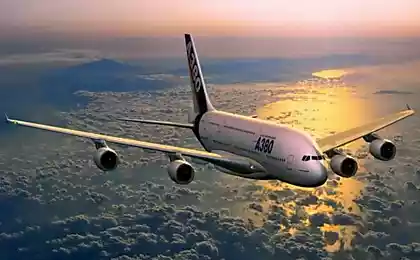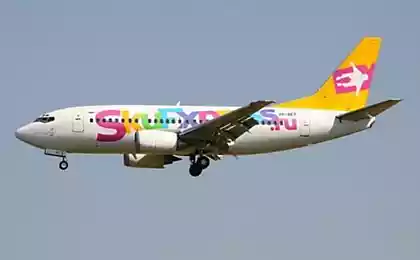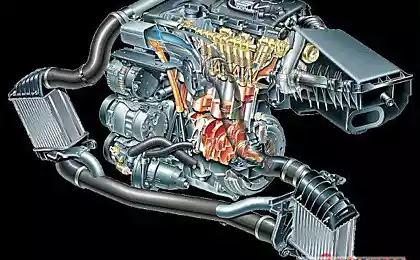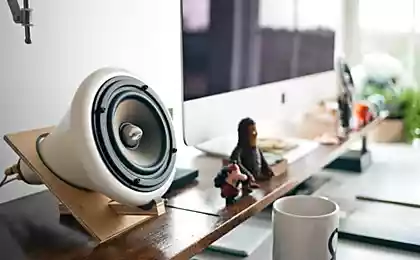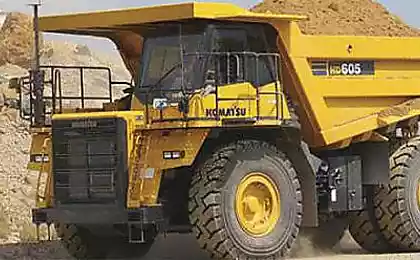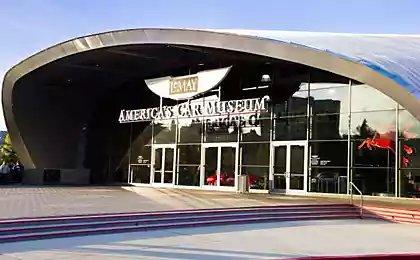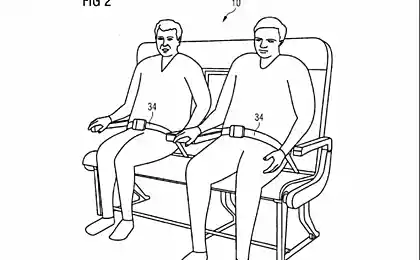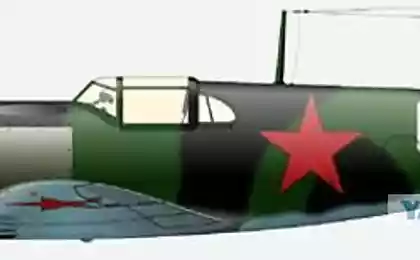654
The future of air travel: the Five finalists of the prestigious aviaconcern Airbus
Engineers and student designers from around the world showed their vision of the future of air travel. 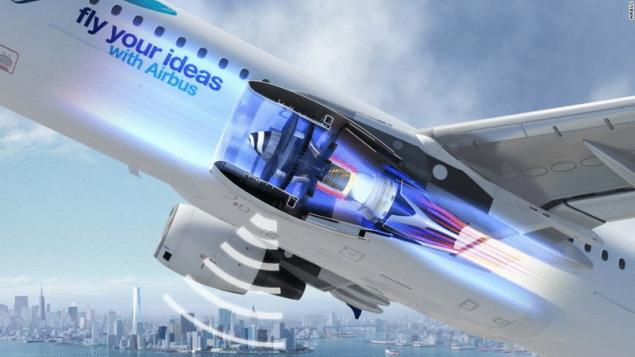
A list of more than 500 designs submitted to the contest Fly Your Ideas, Airbus conducted every two years, was reduced to five finalists. The range of the presented projects were: systems for collecting energy of vibration of the wings to infrared systems to control the maneuvering of the aircraft on the runway.
The winning team will be announced at an event in Hamburg at the end of this month and will receive an award of 30,000 €. The finalists are teams from Brazil, UK, China, Japan and the Netherlands. Here is a complete list of them.
"Good vibration"composite piezoelectric coverage of the surface of airplane wings: a Team Multifun, Delft University of technology, the Netherlands.
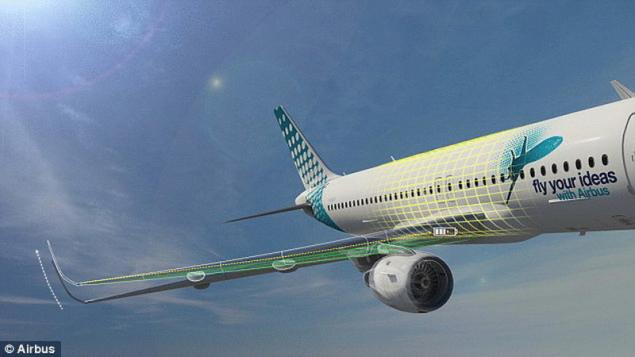
Piezoelectric panels will generate electric charges from small vibrations during the flight, saving energy in the embedded in the fuselage battery. Next, the collected power is expected to be used to power auxiliary systems such as lighting of the interior and local TV. The effect of energy saving for auxiliary needs.
Drones controlled "Birdport": Command Birdport, University of Tokyo, Japan.
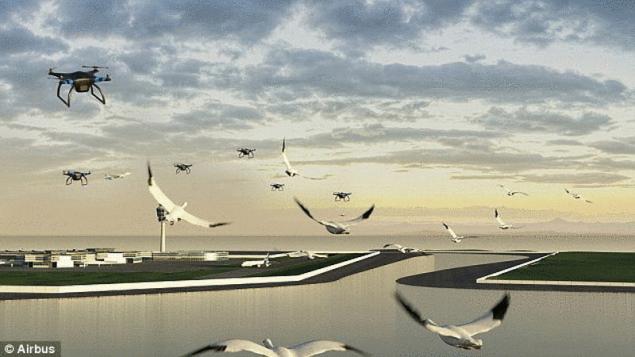
It is suggested that a flock of drones as a Scarecrow to ward off birds that live near airports, from runways.
Drones will monitor the pack and distract the birds away from the airport, imitating their singing and shouting of danger. The main effect of the implementation of the project is safety.
Infrared control system: Team AFT-Burner-Reverser, northwestern Polytechnical University, China.
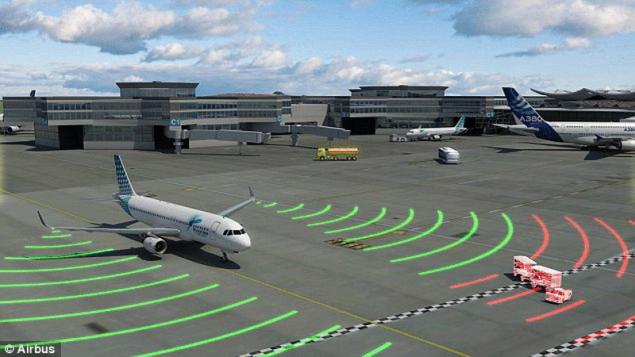
The system will be used during the movement of aircraft on the airport surface, using technology IR sensing, and audible and visual information to warn pilots and drivers of ground crews about the risk of collision with an obstacle during movement. The effect of the implementation of the project — security on the ground.
Fast trash truck: Team Retrolley, University of são Paulo, Brazil.
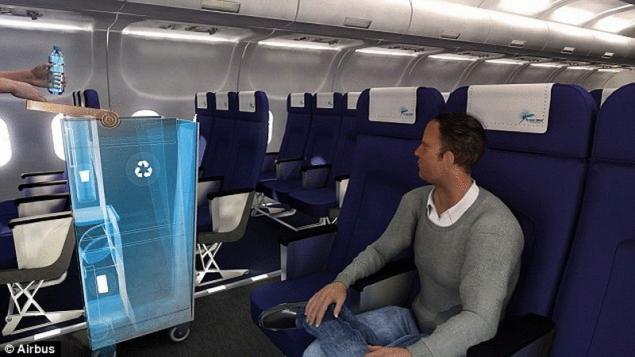
Recycling carts designed to reduce the time required for collecting and sorting waste after the flight, which is very important to speed up maintenance operations of aircraft, especially for flights over short distances.
The truck is designed for collecting various debris and its initial processing by minimizing the amount of foil, paper and plastic, and collect the residual liquid.
Wireless and environmentally friendly system of charging the onboard batteries of the aircraft, "Vigo": Command Bolleboos, University of London, UK.
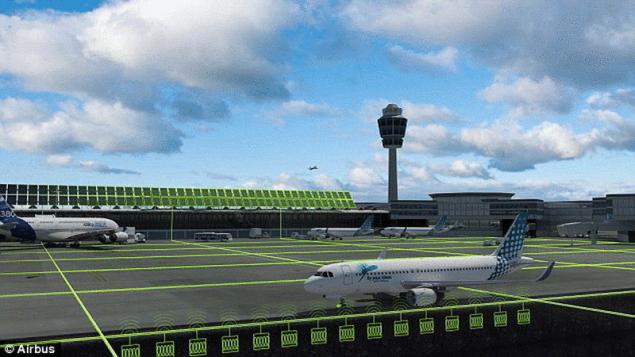
The sending units are placed directly on asphalt pavement of the runway, the energy will be transmitted to the receiving section located between the nose piece landing gear. "Vigo" allows to reduce time for ground maintenance operations and to reduce carbon dioxide emissions by half. published
Source: gearmix.ru/archives/19946

A list of more than 500 designs submitted to the contest Fly Your Ideas, Airbus conducted every two years, was reduced to five finalists. The range of the presented projects were: systems for collecting energy of vibration of the wings to infrared systems to control the maneuvering of the aircraft on the runway.
The winning team will be announced at an event in Hamburg at the end of this month and will receive an award of 30,000 €. The finalists are teams from Brazil, UK, China, Japan and the Netherlands. Here is a complete list of them.
"Good vibration"composite piezoelectric coverage of the surface of airplane wings: a Team Multifun, Delft University of technology, the Netherlands.

Piezoelectric panels will generate electric charges from small vibrations during the flight, saving energy in the embedded in the fuselage battery. Next, the collected power is expected to be used to power auxiliary systems such as lighting of the interior and local TV. The effect of energy saving for auxiliary needs.
Drones controlled "Birdport": Command Birdport, University of Tokyo, Japan.

It is suggested that a flock of drones as a Scarecrow to ward off birds that live near airports, from runways.
Drones will monitor the pack and distract the birds away from the airport, imitating their singing and shouting of danger. The main effect of the implementation of the project is safety.
Infrared control system: Team AFT-Burner-Reverser, northwestern Polytechnical University, China.

The system will be used during the movement of aircraft on the airport surface, using technology IR sensing, and audible and visual information to warn pilots and drivers of ground crews about the risk of collision with an obstacle during movement. The effect of the implementation of the project — security on the ground.
Fast trash truck: Team Retrolley, University of são Paulo, Brazil.

Recycling carts designed to reduce the time required for collecting and sorting waste after the flight, which is very important to speed up maintenance operations of aircraft, especially for flights over short distances.
The truck is designed for collecting various debris and its initial processing by minimizing the amount of foil, paper and plastic, and collect the residual liquid.
Wireless and environmentally friendly system of charging the onboard batteries of the aircraft, "Vigo": Command Bolleboos, University of London, UK.

The sending units are placed directly on asphalt pavement of the runway, the energy will be transmitted to the receiving section located between the nose piece landing gear. "Vigo" allows to reduce time for ground maintenance operations and to reduce carbon dioxide emissions by half. published
Source: gearmix.ru/archives/19946







